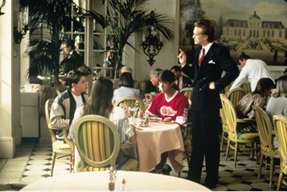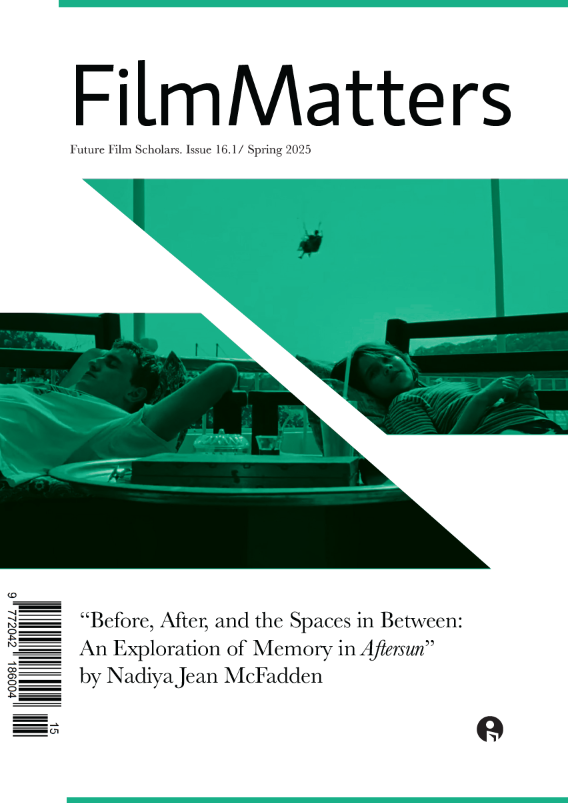
Most people are familiar with John Hughes’s modern classic Ferris Bueller’s Day Off (1986), a narrative with the moral of taking your time and enjoying all of life’s pleasures. The film follows high school senior Ferris Bueller who convinces his two friends, Cameron and Sloane, to skip school and spend the day exploring Chicago. The narrative can be summarized by Ferris’s most famous quote in the film, “Life moves pretty fast; if you don’t stop and look around once in a while, you might miss it” (Hughes, 1986, 00:04:36). However, this quote can be interpreted through different understandings, such as a critique of the capitalist tunnel vision focused on social climbing, overlooking the small pleasures of life Ferris urges viewers to enjoy. An against the grain reading provides insight into the anti-capitalist worldview the film embraces. This perspective can be seen in the visual style and narrative throughout the film. Many elements in the film convey these anti-capitalist ideals, such as the red Ferrari, a consumerist product worshipped by Cameron’s father due to its price and status, and its destruction at the end. The Ferrari can be seen as an allegory for the inevitable downfall of capitalism and consumerism, with Cameron’s acceptance of its destruction echoing the realization the lower-class will have, recognizing the triviality of capitalism the children realize throughout the film. A vitally important scene to arrive at this understanding is the scene in which Ferris and his friends attend a high-class restaurant, highlighting the film’s anti-capitalist ideals. Through the presentation and staging of characters, this scene depicts a rejection of capitalism due to its subjective class categorizations and the ease with which capitalist rule can be subverted, conveying the film’s anti-capitalist ideals.
As previously stated, the restaurant scene reflects the film’s ideals. The scene sets the tone of class differences, having the three main characters, Ferris, Cameron, and Sloane, depict the lower-class and the rest of the restaurant the upper-class. The restaurant is clearly bourgeois and high-end, with classical music playing, staff and other patrons dressed in formal wear, and the chic, white, minimalist decor conveying the restaurant’s prestige. Immediately, the differences are made obvious through the costumes and overall presentation of the three kids. They are clearly under dressed in their casual school attire, with Cameron in his Red Wings jersey, Sloane in a fringe jacket, and Ferris in a leopard print vest and leather jacket, they create a stark contrast with the other formally dressed guests. This causes them to be figuratively, and literally, looked down upon by people in the restaurant. The workers are the ones looking down on the children, willfully dismissing their similar class circumstances due to their professions, although they too are likely part of the lower class. The film capitalizes on this, using it to emphasize the subjectivity of capitalism. If people’s professions and outfits are what create class differences and status, it is evident that capitalist class identifiers have no objective characteristics, thus there are no tangible categorizers of social class.
The film furthers its critique of the subjectivity of social classes when the kids manage to smooth-talk their way into gaining upper-class status. Upon entering the restaurant, Ferris, after quickly scanning the reservation book, decides to adorn the title of Abe Froman, a name on the list. Though the worker does not believe Ferris due to his previously discussed appearance and youth. He tells the kids Abe Froman is the Sausage King of Chicago, insinuating that these underdressed children do not look like they could hold such a high title and status. However, through a convincing phone call where Sloane describes Abe Froman as Ferris, the kids manage to subvert the prejudices of the worker. Later in the scene, after convincing the restaurant of Ferris’s status as Abe Froman, the kids are served as respectable patrons of the restaurant. They are restaged, now seated and being waited on by the man who initially rejected them. This juxtaposes the previous scene, as they continue to be looked down on, only now they hold power rather than experiencing criticism. The reassignment of power to the children, or lower class, further conveys the abstraction of capitalism. It was simple for three kids to subvert capitalist classifications, using nothing but confidence and quick wit to easily achieve class mobility and seemingly become members of the upper class. Their assimilation into high society emphasizes the tenuity of capitalism.
John Hughes’s depiction of capitalist society in Ferris Bueller’s Day Off creates social commentary regarding the empty ideals used to uphold societal beliefs and capitalist social norms. Hughes uses visual style to input subtextual context of anti-capitalist views throughout the film. These encoded concepts are used to critique the class structure and capitalist concepts as the film exposes the cracks in capitalism itself. All in all, contemplating the film through a new perspective proves that it conveys anti-capitalist beliefs which can be seen in an against the grain reading.
Reference
Ferris Bueller’s Day Off. Directed by John Hughes, performances by Matthew Broderick et al., Paramount, 1986. IMDb, https://www.imdb.com/title/tt0091042/mediaviewer/rm450864128/ref_=ext_shr_lnk.
Author Biography
Nicole McKendrick is currently in her third year at Wilfrid Laurier University. She is pursuing a combined major in English and Film Studies with a minor in Sociology.







































